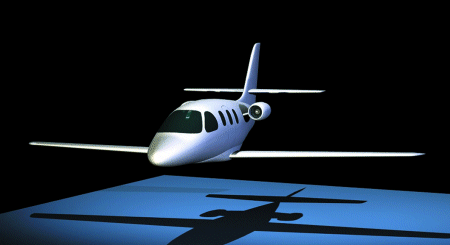Graham Warwick/WASHINGTON DC
Safire Aircraft plans to announce new financing arrangements after withdrawing an initial public offering (IPO). The company, which is developing the S-26 personal jet, says details of the "debt and equity" financing will be released shortly.
West Palm Beach, Florida-based Safire withdrew the $25 million IPO after "other alternatives emerged", says chief operating officer David Humphries. The new financing will involve "significant money", he says. Safire has raised $3 million so far.

The change of direction in financing has not delayed the programme, Humphries says, with certification of the six-seat S-26 still "on track" for May 2003. The company has secured over 700 deposits on the aircraft, he says, which will become non-refundable after first flight in mid-2002.
Humphries says Safire is "firming up" its price and performance, but has "not changed anything". This includes the 350kt (650km/h) cruise, 2,600km (1,400nm) range, 11,300m (37,000ft) ceiling and $800,000 target price.
Safire's engine supplier, Agilis, has released some details of the small turbofan it is developing to power the 2,000kg (4,500lb) gross-weight S-26 twinjet. The TF-800 will have a bypass ratio greater that 5:1, digital controls and integrated nacelle and will produce over 800lb (3.56kN) thrust.
West Palm Beach-based Agilis hopes the core of the TF-800 will be on test by the first quarter of next year, says new business manager Frank Henderson. A growth version, the 1,200lb (5.4kN)-thrust TF-1200, is planned for single-engine applications and twinjets with gross weights over 4,000kg; and a 450kW(600shp)-class turboshaft, the TS-800, has been designed for single- and twin-engine turboprops and helicopters.
Agilis ran its first engine, the 60lb-thrust MT-60 "micro-turbine", in January and is working on the 75lb-thrust TJ-75 and 80lb-thrust TJ-80 turbojets for military expendable and reusable unmanned air vehicles, respectively.
Certification of the TF-800 is set for 2003, but the company plans to deliver engines to the experimental aircraft market "15 to 18 months ahead to give us flight time and ease into production".
Agilis plans to finance its engine programmes through "alliances, partnerships and joint ventures" with major companies, Henderson says. The company will subcontract component manufacture, but control final assembly, although the final assembly line could be located inside another company's factory, he says.
Source: Flight International























